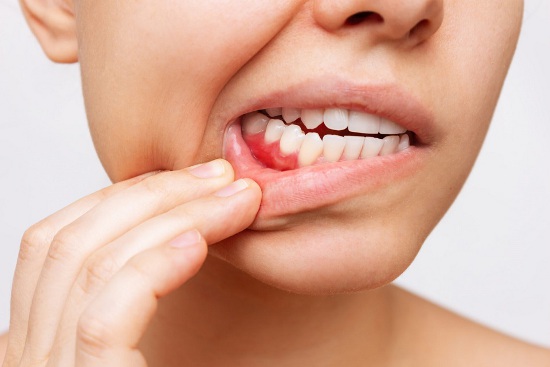Gum disease affects more than 19% of the global adult population and has several modifiable and non-modifiable risk factors. One of the notable non-modifiable factors is age. Studies show the risk of gum disease significantly increases as we get older. Nonetheless, they are steps we can take to avert the problem.

Here are some tips on how to keep your teeth and gums healthy as you get older.
Brush Daily
Brushing your teeth is the standard recommendation for good oral hygiene. Unfortunately, many people miss out on some details that make it effective. Experts recommend you brush your teeth at least twice a day with fluoride toothpaste for the best outcomes. It’s also imperative to brush after meals and take at least two minutes to cover all areas in your oral cavity. Furthermore, your toothbrush should have soft bristles and less than four months of use.
Brushing teeth removes debris in the oral cavity and prevents the accumulation of tartar. This reduces the risk of gum disease. Toothpaste also has antiseptic and some antibacterial properties. They kill harmful bacteria preventing periodontitis and tooth decay.
Floss Daily
Flossing removes plaques and food particles between teeth. It also clears out the areas along the gum line. Dentists advise flossing at least once a day for good oral hygiene. The practice is effective in preventing gum disease and averting tooth decay. Nonetheless, it’s not a replacement for brushing your teeth.
Flossing is simple, but it’s only effective if done thoroughly. Always ensure you cut a sufficient length of floss and take your time on each tooth. Although there is no consensus on the ideal time for flossing, many people do it before bedtime or after lunch.
Mouthwash
Using mouthwash is a quick and simple dental hygiene practice. Dentists recommend using mouthwash solutions that have antiseptic and antibacterial properties. The solution reduces the risk of gum disease and tooth infections. Furthermore, mouthwashes are good for curbing bad breath.
As you use your mouthwash, remember not to swallow the solution, dilute it with water or leave it open to contaminants. Rinse your mouth with water after using mouthwash.
Eat Healthy Food
Eating the right food can significantly reduce the risk of developing gum disease as you get older. A balanced diet is the standard recommendation. This ensures you receive all the necessary nutrients to maintain good oral immunity.
Furthermore, it’s imperative to limit/avoid the consumption of particular foods that pose a risk to your oral health. These include sugary foods, carbonated beverages and acidic foods.
Stop Smoking
Smoking increases the risk of tooth decay and periodontitis with age. The nicotine and tar from smoking impair the immunity within the oral cavity leaving gum tissue vulnerable to inflammation and infection. As you age, the effects of smoking on your oral health also become apparent and irreversible. Therefore, dentists recommend smoking cessation as a solution to prevent gum disease.
Manage Chronic Conditions
Chronic systemic conditions that develop in old age can increase your risk of gum disease. For example, type 2 diabetes often develops in middle age, causing poor glycemic control. This impairs oral health and puts individuals at a higher risk for gum diseases and other infections. Nonetheless, complying with treatment averts the risk.
See Your Dentist
Regular dental visits are essential for managing the risk of gum disease. Your dentist will identify early signs of gum disease and make interventions to curb the problem. Dentists also provide professional cleaning services that restore good oral hygiene and sound advice on dental care. Make sure you visit your dentist at least twice a year.
Although the risk of gum disease increases as you age, these tips will keep your gums and teeth healthy. If you need more information, don’t hesitate to contact your dentist.
